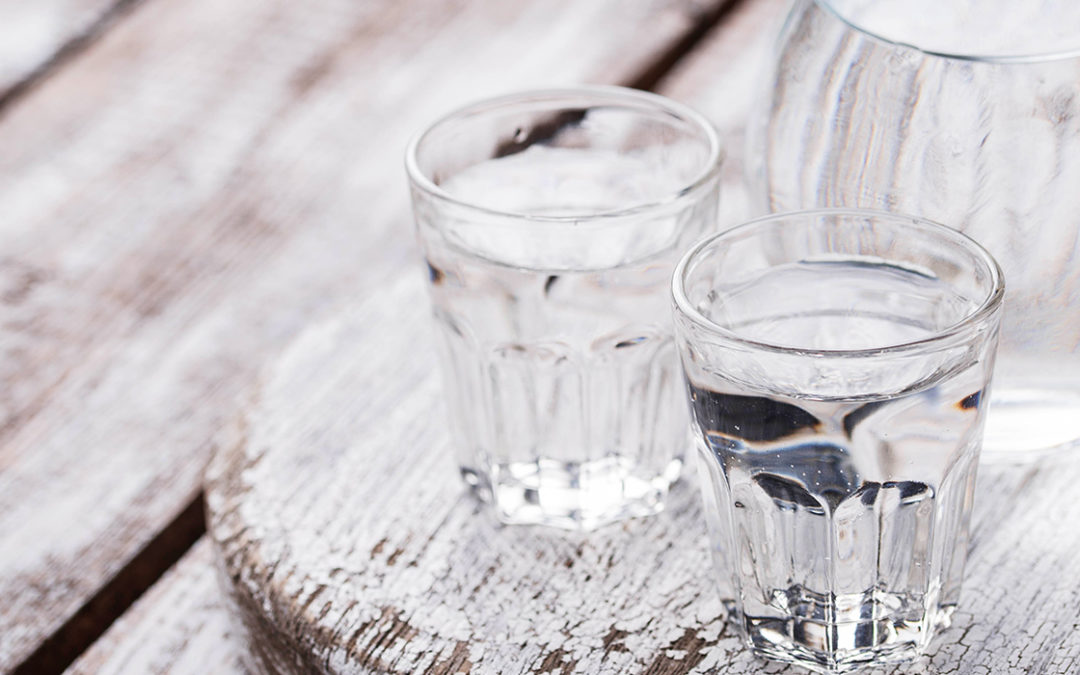On a “good day” your body by weight is at least 60 – 70% water! Roughly two-thirds of the water is in your cells, it also keeps joints and eyes lubricated and acts as a protective cushion for tissues and cells.
Pure water has a neutral pH of 7. By the time a person feels thirsty, his or her body has lost over 1% of its total water amount.
It is recommended that you consume 8 – 10 200ml glasses of plain water per day, this will fluctuate depending on your activity levels.
Drinking water can help you lose weight by increasing your metabolism, which helps burn calories faster. Did you know you could be carrying as much as 4.5-6.8kg of excess water weight right now in your body, trapped in your tissues!
HEALTH BENEFITS OF DRINKING WATER
HELPS MAXIMIZE PHYSICAL PERFORMANCE
If you don’t stay hydrated, your physical performance can suffer. This is particularly important during intense exercise or high heat.
Dehydration can have a noticeable effect if you lose as little as 2% of your body’s water content. However, it isn’t uncommon for athletes to lose as much as 6–10% of their water weight via sweat.
WATER SIGNIFICANTLY AFFECTS ENERGY LEVELS AND BRAIN FUNCTION
Your brain is strongly influenced by your hydration status. Studies show that even mild dehydration, such as the loss of 1–3% of body weight, can impair many aspects of brain function.
WATER MAY HELP PREVENT AND TREAT HEADACHES
Dehydration can trigger headaches and migraine in some individuals. Research has shown that a headache is one of the most common symptoms of dehydration. For example, a study in 393 people found that 40% of the participants experienced a headache as a result of dehydration.
MAY HELP RELIEVE CONSTIPATION
Constipation is a common problem that’s characterized by infrequent bowel movements and difficulty passing stool. Increasing fluid intake is often recommended as a part of the treatment protocol, and there’s some evidence to back this up.
MAY HELP TREAT KIDNEY STONES
Urinary stones are painful clumps of mineral crystal that form in the urinary system. The most common form is kidney stones, which form in the kidneys. Higher fluid intake increases the volume of urine passing through the kidneys. This dilutes the concentration of minerals, so they’re less likely to crystallize and form clumps.
HELPS PREVENT HANGOVERS
A hangover refers to the unpleasant symptoms experienced after drinking alcohol. Alcohol is a diuretic, so it makes you lose more water than you take in. This can lead to dehydration. Although dehydration isn’t the main cause of hangovers, it can cause symptoms like thirst, fatigue, headache, and dry mouth. Good ways to reduce hangovers are to drink a glass of water between drinks and have at least one big glass of water before going to bed.
CAN AID WEIGHT LOSS
Drinking plenty of water can help you lose weight.
This is because water can increase satiety and boost your metabolic rate. Some evidence suggests that increasing water intake can promote weight loss by slightly increasing your metabolism, which can increase the number of calories you burn daily. The timing is important too. Drinking water half an hour before meals is the most effective. It can make you feel fuller so that you eat fewer calories.
WHEN IS FAT NOT FAT IN YOUR DIET?
Additional water in the body contributes to abdominal bloating, cellulite and puffiness in the face and eyes – this is known as “false fat”.
Waterlogged tissues can result from:
- Not drinking enough
- Not eating enough
- Sensitivities to certain
- Hormonal fluctuations -e.g., the menstrual
- Certain
- Nutrients & antioxidant
Looking at the top two on the above list, it seems a little crazy that these would cause the tissues in our bodies to become waterlogged!
CONSUMING TOO LITTLE WATER
Your kidneys need water to flush waste from your body, so if you don’t drink enough water your kidneys will store water.
Your lymphatic system will dramatically slow down. This system of organs, tissues and miniscule channels filter cellular waste and other foreign particles.
When you have a sluggish lymphatic system, it will no longer carry the waste materials away, therefore the waste accumulates in your fat cells and may cause cellulite, especially in women.
CONSUMING TOO LITTLE PROTEIN
If you remove protein-rich food from your diet, it may contribute to water retention.
Protein plays a vital role in tissue growth and healing, strengthening your immune system and burning fat. It has hydrophilic (water-loving) properties which impact on water retention.
Protein circulating in your blood helps to control the water levels both between and inside your cells as well as within your veins and arteries by attracting water molecules. When your blood filters through your kidneys, the excess water is removed and excreted.
When you are deficient in protein, fluid will seep out from your vascular spaces and fill the spaces between your cells. It then becomes trapped, resulting in water retention, bloating, cellulite, and water weight gain.
THE BOTTOM LINE
Even mild dehydration can affect you mentally and physically.
Make sure that you get enough water each day, whether your personal goal is 64 ounces (1.9 litres) or a different amount. It’s one of the best things you can do for your overall health.

